Home > Lifestyle > Food For Thought > 8 Excellent Sources of Plant-Based Protein
8 Excellent Sources of Plant-Based Protein
Whether you’re just starting out as a vegan or vegetarian or you want to reduce your meat consumption and eat a more balanced diet, you might be wondering how to get enough protein. While the macronutrient can be found in a wide range of foods, choosing varied and high-quality plant-based protein sources – and enough of them to reach your daily requirements – is essential for good health.
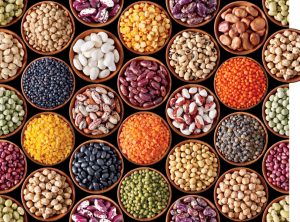
How Much Protein Do You Need?
Every cell in the human body contains protein, so it’s no surprise that the nutrient is one of the most important elements of a healthy diet. It helps the body repair cells and is an important building block of bones, muscles and skin. The exact amount of needed protein changes with age and activity level, but the average adult man needs about 56 grams a day, while the average adult woman needs about 46 grams a day.
However, not all sources of protein are created equal. While complete proteins provide all the essential amino acids the body needs, incomplete proteins lack one or more. Since most animal proteins are complete, it’s especially important to eat a varied and balanced diet including many different sources of protein if you’re eating less meat or following a strictly plant-based diet. And even if you do eat meat and other animal products, swapping some of your animal proteins for plant-based options is a good way to balance your diet and pack in even more vitamins and minerals.
Here are some of the best protein sources to include in a healthy, plant-based meal:
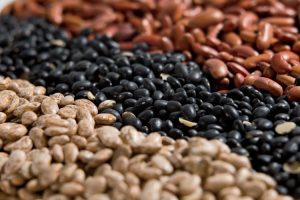
1. Beans
All types of beans – including black beans, chickpeas, white beans, pinto beans, red beans and many others – are protein powerhouses. In fact, just one serving of cooked beans provides about 7 grams, which is the same amount of protein you’ll get from 1 ounce of meat. Beans are also high in fiber, which helps keep you full longer, unlike meat, which contains no fiber. Depending on the types of beans you eat, you can reap a bounty of additional health benefits as well, like added iron, vitamins, manganese, thiamine and more.
Recipes: Creamy White Bean and Collard Soup, Four Bean Salad, Roasted Acorn Squash and Black Bean Salad
See more: 12 Creative Ways to Cook With Beans
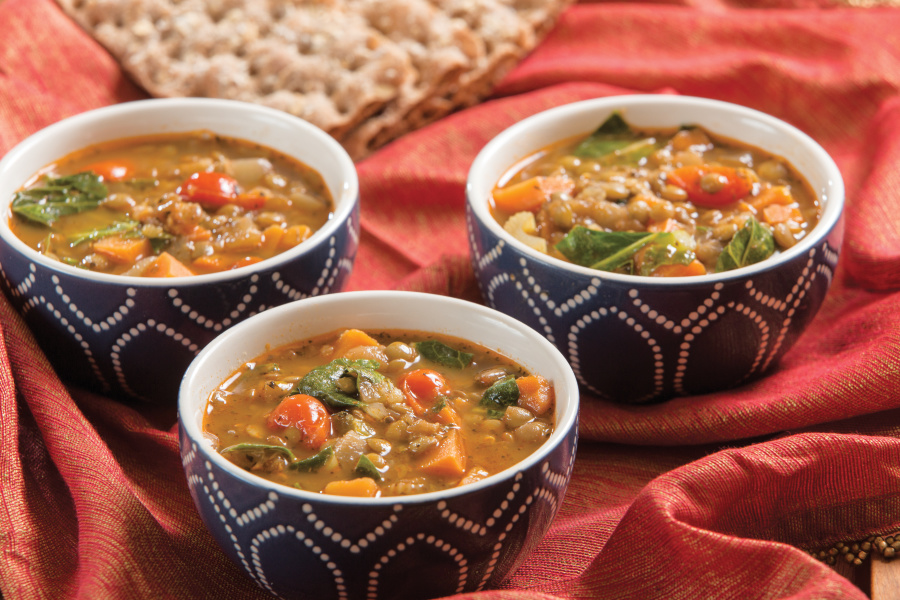
2. Lentils
Lentils are one of the best sources of plant-based protein out there. Just 1 cup of cooked lentils offers a whopping 18 grams. They’re also very versatile and perfect for adding to your favorite soups, stews or salads to get a little extra protein boost. You can even use them to make a meatless Bolognese-style sauce for pasta or a vegetarian burger. And in addition to protein, they also provide plenty of protein, fiber and other key nutrients.
Recipes: Hearty Lentil Soup, Oriental Chicken Salad with Lentils, Lentil Apple Muffins
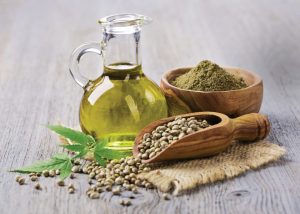
3. Hemp Seeds
Hemp seeds are one of the few plants that provide complete protein. Just 3 tablespoons of hemp seeds contains about 10 grams of protein. You can toss them into salads, blend them into smoothies, or sprinkle them over a bowl of cereal or oatmeal to add a tasty nutty flavor. They’re also a great source of magnesium and omega-3 fats, which are essential for heart health.
Recipes: Hemp Seed Cookies, Hemp Heart Energy Bites
See more: 5 Fun Facts About Hemp
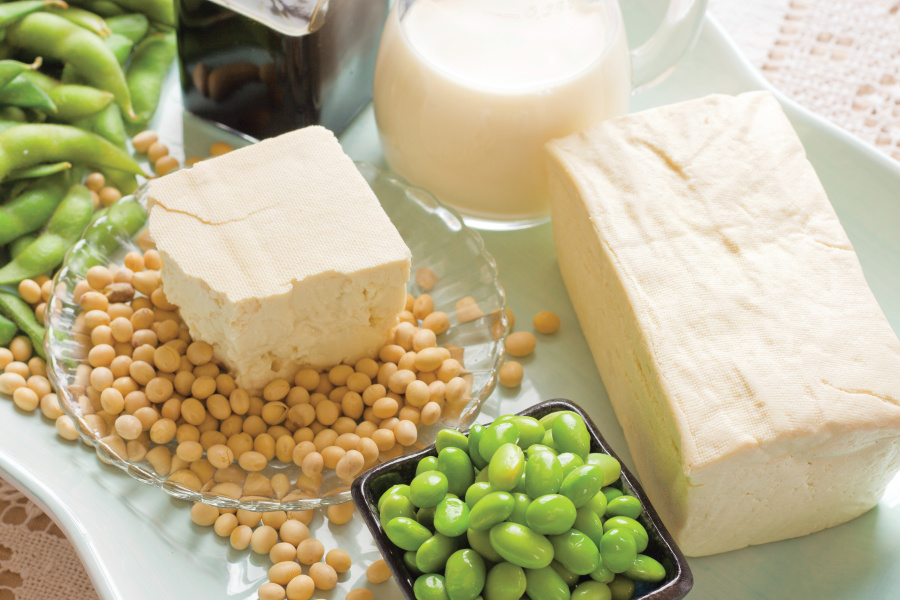
4. Tofu
Thanks to its mild flavor that takes on the flavors of the foods it’s cooked with, tofu can make an excellent substitute for meat in your favorite dishes. Made from soy, it packs a protein punch with about 10 grams of protein for every 1/2 cup. Add it to sandwiches, curries or soups for extra protein, or you can even use it to make high-protein desserts like tofu cheesecake or pudding.
Recipes: Tofu Pad Thai, Buffalo Tofu Bites, Decadent Double Chocolate Tofu Cheesecake
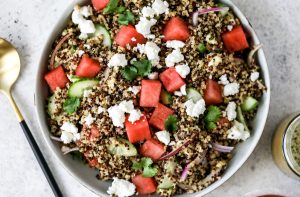
5. Quinoa
Looking for a healthier substitute for white rice? Quinoa is a high-protein, nutrient-rich grain that provides enough fiber and protein to fill you up and keep you full longer. A cup of the cooked grain contains about 8 grams of protein, in addition to other important nutrients like magnesium, iron, fiber and manganese. The nutty grain is also very versatile in everyday cooking. Add it to salads, soups, stews or serve it as a side dish where you would normally serve rice.
Recipes: Roasted Pumpkin Quinoa Salad, Quinoa-Stuffed Acorn Squash, Quinoa Salad with Watermelon, Cucumber, Feta and Citrus Vinaigrette

6. Nuts & Nut Butters
A handful of nuts as an afternoon snack or a tablespoon or two of your favorite nut butter on your morning toast is an excellent way to pack more protein into your day. Almonds provide about 7 grams of protein per quarter cup, while peanuts contain a whopping 10 grams per quarter cup. Other healthy, high-protein nuts include walnuts, pistachios, cashews, pine nuts, Brazil nuts and hazelnuts.
Recipes: Homemade Peanut Butter, Peanut Pumpkin Hummus with Homemade Peanut Crackers, Red Thai Roasted Sweet Potatoes with Cilantro and Peanuts
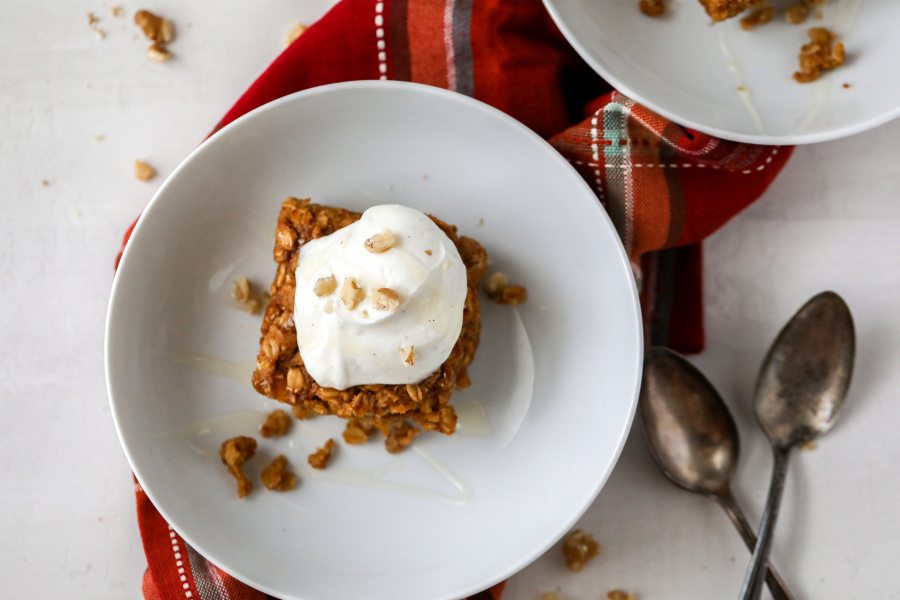
7. Oats
Oats make an easy, healthy and filling way to add more protein to your breakfast. Half a cup of dry oats provides about 5 grams of protein, as well as fiber, magnesium, zinc, folate and phosphorus. Oats can also make a tasty and nutritious addition to granola, pancakes, veggie burgers and even desserts. You can also try baking with oat flour to add more protein to your favorite baked goods like muffins or cakes.
Recipes: Pumpkin Oatmeal Bake, Cranberry Date Oat Squares, Whole-Grain Carrot Muffins
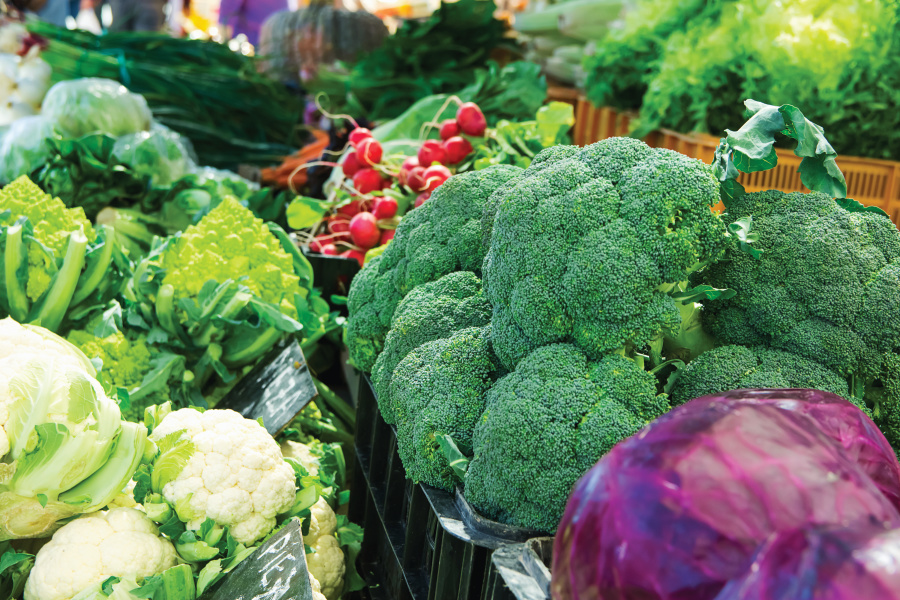
8. Vegetables
You might not think of vegetables as protein powerhouses, but some can offer a surprising amount of the nutrient. Some of the best sources include broccoli, dark leafy greens like spinach and kale, sweet corn, asparagus, potatoes and Brussels sprouts. While it would be nearly impossible to get all the protein you need from vegetables alone, they can be a great way to boost the protein content of a dish while providing even more nutritious vitamins and minerals.
Peas are especially rich in protein, offering a whopping 8 grams per cup. You can even purchase pea protein powder as a supplement to blend into smoothies and shakes. The powder is made from extracting protein from yellow peas and is one of the most easily digested plant-based protein sources available.
Here’s a look at how some fruits and vegetables stack up in the protein department:
- Green peas: 8g protein per cup
- Avocado: 4g protein per avocado
- Asparagus: 4.3 g protein per cup
- Spinach: 5.2 g protein per cup
- Sweet Corn: 4.7 g protein per cup
- Potatoes: 8g protein per large baked potato
- Broccoli: 2.5g protein per cup
Recipes: Warm Broccoli Three-Pepper Salad, Mixed Greens With Snow Peas, Grapes and Feta, Creamy Roasted Garlic and Spinach Orzo
Sources: Healthline, Eating Well, Medical News Today, WebMD




Plant protein powder from Vegan Way has recently become one of my favorites. Cafe Mocha is one of my favorite flavors. I strongly advise you to do so.
Read more…
https://ibgnews.com/business-wire-news?for=N&Value=6bhxrbEfnq2M0Er6Fr148AiszVYuFk1NzwhVXnWdQDbR1AhoGt9SN2Pt9gI%3d